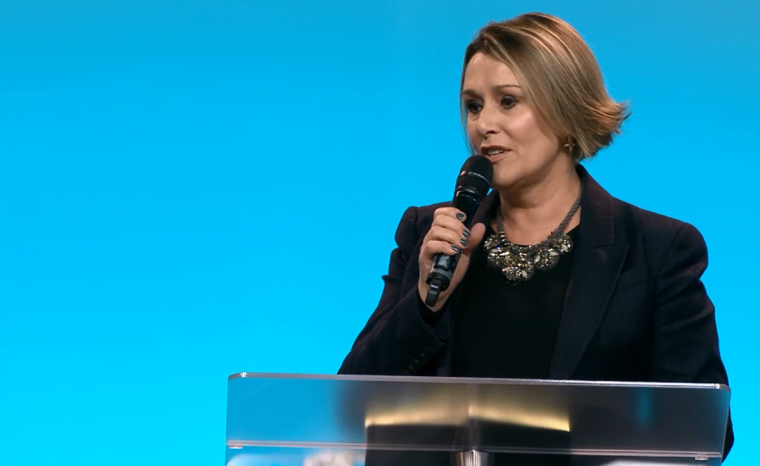Rick Warren says church has a biblical, historical, practical responsibility in caring for mentally ill

LAKE FOREST, Calif. (Christian Examiner)—Rick and Kay Warren launched Saddleback Church's second Gathering on Mental Health and the Church on Thursday morning with a call for faith communities to take the lead in caring for those with mental illnesses. In the opening session of the conference, Rick Warren, Saddleback's founding pastor, argued the church had a biblical, historical and practical responsibility to make a priority of caring for those with mental illnesses.
If we don't decide to become that radical expression of God's friendship in this world, we will end up pushing people to the edges, to the margins, the people who most desperately need to be friended, to be loved, to be embraced, to be cared for in society. We we will push them out of our lives, we will push them to the edges of society and worst of all we will push them out of the community of faith.
"Churches are typically the first organization families in pain reach out to," Warren said. "When a family is having a mental-health crisis, they don't go first to their lawyer. They don't go to their accountant. They don't even go to the police or the doctor or even the principal. Usually, the first person they call is the church."
The Warrens' message concluded the opening session of the conference. More than 2,200 people participated in the first day of the conference on the Saddleback campus. Nearly 4,000 watched the conference for free online. The Warrens started the conference in 2014 after their youngest son, Matthew, died a year earlier following a lifelong battle with mental illness.
After teaching why the church must take the lead on mental illness, Warren shared five theological foundations that must define the church's mental health ministries. Those foundations are:
- Every person has dignity because they are made by God, they are made in God's image and they are made for God's purposes and for God's glory.
- In our fallen, imperfect world, all of us are broken.
- Even though we're broken, we're still deeply loved and deeply valuable.
- We get well in community.
- What isn't healed on earth is healed in heaven.
Kay Warren followed up her husband's message by emphasizing the need for the church to befriend the mentally ill. She reminded the audience God loved them even when they were at their worst. The radical love of God toward them should transform how they love and befriend the mentally ill, she added.
"If we don't decide to become that radical expression of God's friendship in this world, we will end up pushing people to the edges, to the margins, the people who most desperately need to be friended, to be loved, to be embraced, to be cared for in society," Kay said. "We we will push them out of our lives, we will push them to the edges of society and worst of all we will push them out of the community of faith."
Kay urged the audience to never confuse the diagnosis of mental illness with the person dealing with it. She said when the church confuses the two, it struggles to fulfill its unique role in the situation.
"The reason that is because nobody can talk to the personhood, nobody can address our soul in the way the church can," Kay said. "There's a limited role the government can play. We need what the government can do as it relates to mental illness. We need what the medical community can do as it relates to mental illness, but we desperately need what the faith community brings to this conversation because it is only the faith community that deals with the souls, that deals with the personhood."
Author Sheila Walsh also gave her own testimony of battling depression during the opening session. As co-host of the 700 Club on the Christian Broadcasting Network 25 years ago, she broke down in tears one day when a guest asked her how she was doing. By that evening, she was in the locked ward of a psychiatric hospital.
Yet Walsh then shared how she found a renewed purpose and has helped women all across the world deal with depression. She particularly recounted one story of an encounter with a pastor's wife who was struggling with mental illness but afraid to tell anyone. At the beginning of the meeting, the woman wouldn't even look Walsh in the eyes.
"I'll never forget the moment when she raised her eyes and made eye contact with me, the tears flowing down her face," Walsh said. "We ended up on our knees together, just two broken sinners at the foot of the throne of grace. When she left that day and turned and ran into her husband's arms, I said, 'Lord, I'd go through that every single moment for that woman.'"
For more information on The Gathering on Mental Health and the Church and to find resources to help your church develop a mental health ministry, visit www.mentalhealthandthechurch.com.